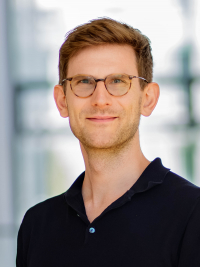Psychoanalytic-Interactionally Oriented Parent-Child Groups
The aim of this research and development project is to develop structured, group-based interventions over a period of 24 sessions, accompanied by mixed methods impact research.

Humans as social beings develop from birth in and through relationships with their social environment. Numerous research studies confirm this uniformly (e.g. Bowlby, 1988, Fonagy, 2018). For newborns, infants and toddlers, relationships are therefore of existential importance. Conversely, the early childhood development of children with multiple stressed parents is therefore exposed to special risks. Last but not least, this also applies to parents with mental and psychiatric disorders (Remschmidt, Mattejat, 1994). Personality and anxiety disorders of parents alone are already developmental characteristics for persistent disorders in the children.
A well-known difficulty is that highly stressed parents refuse indicated measures, sometimes even inpatient treatment, out of concern for their children, or discontinue them early due to a lack of support from the family system. Thus, outpatient support is necessary for sick and multiply stressed parents, which on the one hand primarily prevent clinical measures or shorten them and/or enable parents to open up to the use of specialist support. Following other intervention programmes (STEEPTM, Erickson & Egeland, 2006), this can be achieved very well in a combination of individual and group settings.
The four groups are divided according to developmental stages (4 - 12 months, 12 - 24 months, 25 - 48 months, 49 - 60 months) in order to convey information about the respective developmental age in a targeted manner during the course of the groups (psychoeducational elements). Parents/families with children with particularly challenging relationship problems are given priority in the groups. One group session lasts 1.5 hours.
In a familiarisation phase (phase 1), the parents are taught relevant basics of the respective developmental stages of their children through playful interactions and questions are answered together. On the one hand, this ensures through model learning that other parents also experience uncertainties that can be resolved through professional support. On the other hand, this phase serves to diagnose the relationship (DC: 0 - 5, ZERO TO THREE). On this basis, in the interactional phase (phase 2), feedback, mentalisation and triangulation are used to give parents an understanding of how to form relationships with and through their children and to develop initial alternative strategies. In the practice phase (phase 3), parents can practise and deepen the newly developed strategies through joint action and mutual feedback. In the final phase (phase 4), changes are reflected and parents are encouraged to acknowledge their own uncertainties and developmental needs in order to discuss further support services if necessary.
The process quality is ensured through weekly case discussions, regular external supervision. The modes of action and effectiveness are accompanied by continuous qualitative and quantitative data collection, which is implemented by involving students of Social Work (BASA), Early Childhood Education (BABEK) and Early Childhood Studies (MAFB), especially in the context of final theses
Literature
- Bowlby, J. (1988). Bindung: historische Wurzeln, theoretische Konzepte und klinische Relevanz. In: Spangler/ Zimmermann (Hrsg.), Die Bindungstheorie. Grundlagen, Forschung und Anwendung (S. 17-26). Stuttgart: KlettCotta.
- Fonagy, P. (2018). Bindungstheorie und Psychoanalyse (4. Auflage). Stuttgart: Klett- Cotta.
- Staats, H., Bolm, T., & Dally, A. (2014). Das Göttinger Modell der Gruppenpsychotherapie. In: Gruppenpsychotherapie und Gruppenanalyse. Göttingen: Vandenhoeck & Ruprecht.
Contact
Project management

Prof. Dr. Dipl. Psych. Karsten Krauskopf
Project participants
Anke Mühle